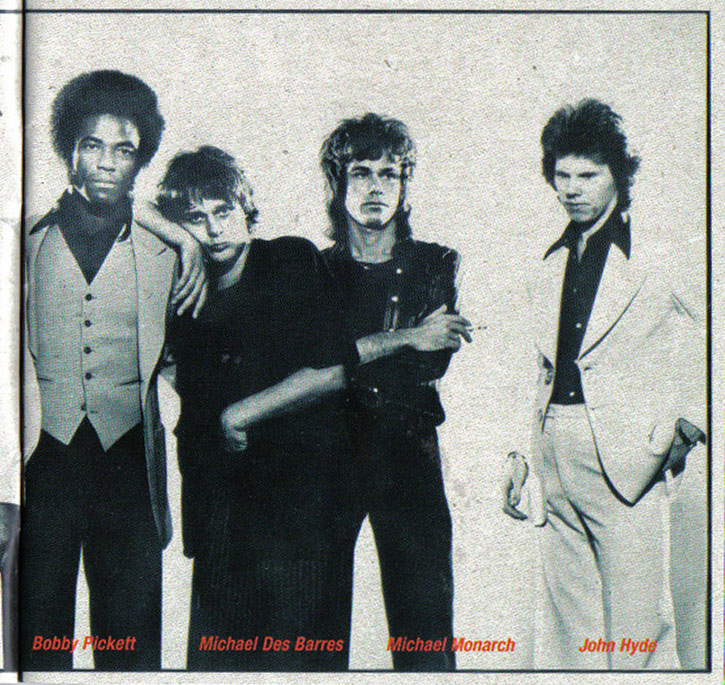


Select the image to learn more about the band members




Nobody else at the time sounded quite like them. And no other band had that innate, animalistic sense of energy, ire and fire.
What made Detective work so brilliantly wasn’t just that the command of these four was imperious, but that they didn’t expressly follow any predetermined plan or ploy. The band were very much a spontaneous configuration who let their drive come from inner feelings, rampant divergence and blazing disruption. Nobody else at the time sounded quite like them. And no other band had that innate, animalistic sense of energy, and ire and fire. This was a band who cared for nothing for the niceties of commercial expedience, but based on their sound on the experience of life. It was dark, almost demented, but never anything but raw, ragged and riotous.
While on the surface, Detective was a serious collection of musicians, this was an era when excess was taken as being mandatory – limits were expunged as irrelevant to the craft of the artist. “We had an inexhaustible budget with which to record, and as much time as we wanted,” laughs Des Barres. “Those were the days, when nothing was thought to be too outrageous.”
Formed in 1976, Detective signed to the Swan Song label launched by Led Zeppelin and released their self-titled debut album a year later. Co-produced by Andy Johns and Jimmy Robinson, it peaked at #135 in the US charts. Obviously, this might not seem to have been particularly impressive, but there’s a distinct agitation and passion on the record that has allowed it to translate across the years with a resonant sense of style.
Released later in 1977 ‘It Takes One to Know One’ improved on its predecessor’s chart position in America. Again, hardly cause for much celebration. “In some ways, of course, it was great to be so closely associated with Led Zeppelin,” recalls the drummer, Jon Hyde. “But this was very much their vanity label, and we were treated as such. At the time, the whole Zeppelin camp was somewhat in disarray, and this was reflected in the lack of support we got on promotion and marketing fronts. When the band started, we had offers from other labels, such as Columbia, and with hindsight, maybe we should have gone with them. However, the truth is that the label was dysfunctional. It’s not as if we could pick up the phone and call Jimmy Page or Robert Plant to discuss any problems we might have been having…”
Despite all these problems, “It Takes One To Know One” remains and exciting, agitated album, one of the best of the 1970’s. To call it punk is disingenuous – musically, it most certainly is NOT – however, there is a febrile flow here that does reflect the zeitgeist. This is aristocratic music with a spitting, gutter ball philosophy.
Click photo to open up a collection of uncovered Detective imagery